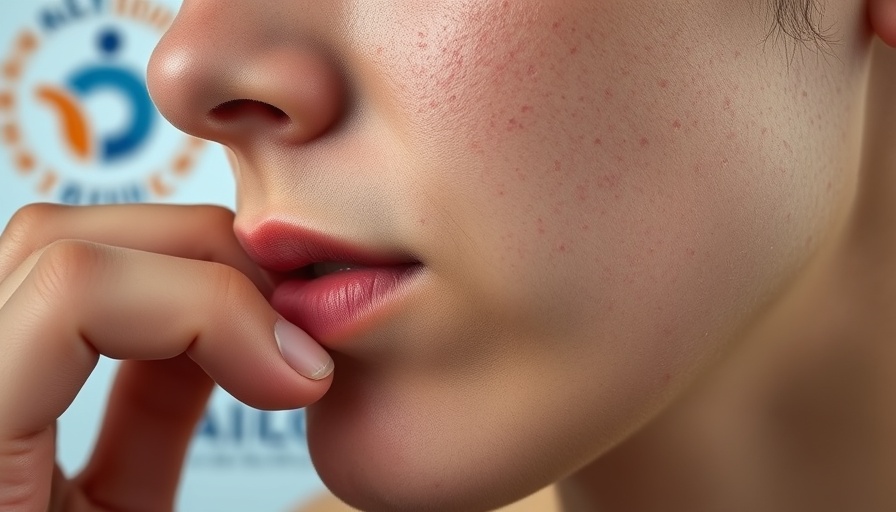
Understanding Skin Health: More Than Just A Surface Issue
Your skin isn't just your body's largest organ; it can also provide significant insights into your overall health. As highlighted by dermatological experts like Dr. Yuval BBE in the recent 'Ask the Doc' episode, skin conditions often reflect internal health issues, prompting us to delve deeper than just the visible symptoms. Every red spot, rash, or unexpected breakout may hint at underlying stress, hormonal changes, or even chronic diseases.
In 'Your Skin, Your Health: Rosacea, Rashes & Everyday Care | Ask The Doc', the discussion dives into skin health issues and their implications on overall well-being, prompting a deeper look at how we care for our skin.
Common Skin Conditions and Their Impacts
In the episode, several common skin conditions were addressed, including rosacea, eczema, and dermatitis. Understanding these issues is crucial for effective management. For instance, rosacea is a pervasive skin condition characterized by facial flushing and persistent redness, which can be exacerbated by stressors. It serves as a reminder that our emotions and mental well-being can deeply influence our physical appearance.
The Interplay Between Stress and Skin Health
Stress is a significant factor in many dermatological conditions. According to experts, stress doesn't just lead to emotional fatigue—it can trigger skin conditions to flare up. With conditions such as eczema and psoriasis, managing stress via practices like mindfulness and regular self-care routines is essential. Incorporating simple techniques, such as deep-breathing exercises or yoga, can act as a protective shield for your skin, allowing both your mind and body to maintain balance.
Skin Care: The Right Approach to Cleaning
One of the common misconceptions revolves around cleansing practices. As discussed by Dr. BBE, scrubbing the skin can do more harm than good, stripping away essential oils and damaging the skin barrier, especially for those with sensitive skin. Instead, gentler methods—like using coconut oil or petroleum jelly to remove makeup—can facilitate a healthier skin barrier, thus allowing for better hydration and overall health.
Makeup Removal and Sensitive Skin: Best Practices
For those managing skin sensitivities, particularly amidst busy lifestyles, it’s vital to adopt an effective yet gentle skincare routine. Using oil-based removers instead of traditional soaps can preserve the skin's protective layers. It's all about respecting the skin's natural balance and allowing it to repair and rejuvenate while navigating daily life.
Importance of Sun Protection for Long-term Skin Health
A critical takeaway from the discussion was the role of sunblock in our skincare rituals. Gone are the days of slathering on baby oil for a summer tan. The modern mantra underscores the importance of shielding your skin from harmful rays. Zinc oxide and titanium dioxide are recommended for their effectiveness as sunblock ingredients, providing crucial defense against skin damage that can lead to more serious issues like skin cancer over time.
Identifying Skin Changes: When to Seek Help
For many, the appearance of new skin lesions can be a source of anxiety. Dr. BBE introduced the ABCDE method for assessing moles and spots. It encourages individuals to look for asymmetry, irregular borders, uneven color, a diameter larger than a pencil eraser, or any other evolution in appearance. Recognizing these factors early can potentially save lives through timely intervention.
Conclusion: Empowering Yourself Through Knowledge
Knowledge truly is power when it comes to skin health. With insights from experts like Dr. Yuval BBE, individuals can equip themselves with effective strategies to take charge of their skin health. Whether it’s managing stress, understanding the importance of gentle cleansing, or recognizing potential signs of skin cancer, proactive engagement in personal health and wellness is essential. Don't wait for conditions to escalate; be your own advocate for a healthier skin journey.
For more personalized medical advice or if you’re facing specific skin issues, consider scheduling a consultation with a healthcare professional. Your skin deserves informed attention and care!
 Add Row
Add Row  Add
Add 




Write A Comment